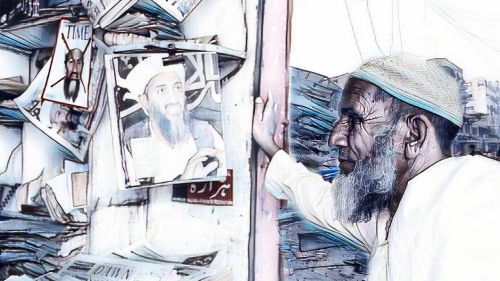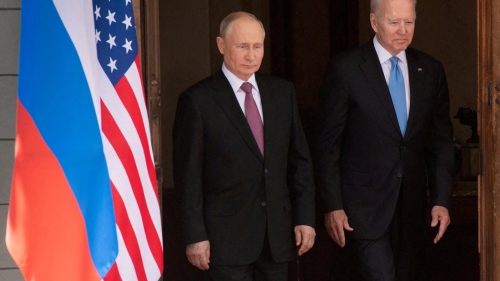Tyranny and the Tyrants - The unlearned lessons of history

The saying goes "history of the world is the world's court of justice." Is it true?
The tyranny of the Red bears in the former Soviet Union has ended. The Taliban grip choking the Afghani people has come loose. The genocidal regime of Pol Pot in Cambodia was thrown out. The Shah of Iran, a puppet dictator planted by the United States, was dethroned. Recently, the menacing statue of Saddam Hussein, the butcher of Baghdad, fell to the ground quite unceremoniously; one more tyrant is gone, along with his symbols.
These events occurred right before our eyes. As these tyrants and their tyranny find their place in the annals of history, they seem to consistently repeat a common lesson of history, as in the words of George Bernard Shaw: "We learn from history that we learn nothing from history."
Learning is power. But those who seem to be at the helms of power have little learning, from both the past and the present. Hence, power seems most commonly a source of delusion and a veritable tool of abuse against others, instead of serving as a springboard for positive pursuits.
Whether it is the world's court of justice or not, history does record rather consistently that tyranny and abusive powers don't last. It is just as true for individual tyrants as it is for tyrannical regimes.
Empirically speaking, all the empires of the past that were based on tyranny or the abuse of power, subverting the common bond of humanity, have fallen from their heights - sometimes to their nadir or became extinct.
Egypt is still here, but only with the mark of the Pyramid-high pomp and arrogance left by the Pharaohs, to bask in the old glory. Rome is still as prominent as one of the European cities. As recently as the last century, the ugly face of tyranny resurfaced under Mussolini's fascism, but the Roman empire, one of the most expansive, aggressive and overpowering ones in history, lives only in the antiquated historical ruins or monuments. Great Britain, the only country that calls itself "Great", is still a world power, but nothing like the overreaching empire, across which a while back in time the sun never set.
One can argue that some moral determinism or force may have been at work. But that might be an optimistic view; people cannot count on such moral determinism to take care of those power-hungry ones who do not learn from history. Those who wish to leave such matters to the "world court of justice," i.e., history, do not need to bother. Yet those who believe that people have the power to change or to make a difference have to be proactive.
As Saddam's regime was undone in Iraq, one must not forget that there are many regimes and governments at the helm of power in their respective countries that are comparably tyrannical, depriving their people of liberty, prosperity, and human dignity. Many of them are understandably nervous, facing the potential dual wrath from their own people on one hand and the liberator (?) of this century led by the Bush regime, on another.
Whether the tyrannical, un-Islamic and unrepresentative rulers are in Saudi Arabia, Syria, Egypt or Pakistan, they know that they are sitting on catbird seats. Tyranny in these societies have a strong internal root, based on the theological trap that people are supposed to obey whoever is in power and that power is given by God. Such dysfunctional notions have taken firm root in the orthodox Islamic theology, legal discourse, and the psyche of common people. The Qur'an, of course, rejects any fatalistic and passive outlook or position in this regard.
Seeking change does not mean seeking or resorting to violence, but proactive effort to bring about positive change at all levels, individual and collective, is at the core of the message of the Qur'an. While the Qur'an takes the tyrants and abusers of power to task and repudiates their legitimacy and power, it also emboldens and empowers those who think that they are weak and powerless.
However, the fall of a tyrant, as in the case of Saddam Hussein, does not confirm the end of tyranny either in Iraq or among its neighbors. While the real reason for which America invaded Iraq without any international mandate may be unclear, the reasons for which it did not invade are not so unclear. Democratization or true liberation of Iraq is not one of those reasons. A similar approach has not been taken in a single country or region except for in Europe, as American Marshall Plan helped rebuild Europe and Japan and firmly implanted democracy after the World War II.
In Vietnam, America got involved in a war of its own making. In Iran, contravening all moral and legal norms, it toppled a constitutionally elected government and installed its own puppet regime. In Afghanistan it used the Afghan people to kick out the former Soviet forces and then abandoned the same folks amidst ruins, only to return later to further level the country. In Pakistan, it stood by a genocidal regime in 1971 and even sent its 7th Fleet in support, as that regime pulled off a genocide of millions of people in East Pakistan (now Bangladesh) and force-converted 10 million people into refugees, seeking shelter in India.
If there is a single, overtly denuded manifestation of hypocrisy in the US foreign policy, it is its lopsided engagement in the Israeli-Palestinian conflict, causing further and sustained suffering, alienation, and radicalization of the Palestinian people. Expecting any genuine democracy, other than a possible puppet regime in a democratic cloak in Iraq, would defy the long - standing and consistent relevant record of the US. Thus, departure of tyrants, especially former bedfellows of America, may not mean a complete deliverance from tyranny - in Iraq or anywhere else.
The world is well aware that Saddam Hussain, one of the worst dictators of our time, has been a buddy of USA, when USA helped and used Iraq in the war against Iran. Saddam and his regime were no different at that time, except one factor: that is, the US at that time needed to use the Bathist dictator of Iraq. Now, the consideration has changed, and America has made an example out of the removal of him and his repressive regime. The message: a similar fate may await other tyrants if they don't tow the line of the greater powers. Of course, the role of superpowers has nothing to do with tyranny!
Would the other tyrants in the region evaluate the unlearned lessons of history? It would be nice to have the history's most common lesson proven wrong, but it is very unlikely. Tyrants and regimes don't change personalities. In case of the contemporary tyrants and regimes of tyranny, there is an additional complicating factor. These are not independent tyrants. Most of them are installed, facilitated, or protected by the greater powers of our time. When the interest of these greater powers would dictate, such tyrants would go, as it happened in case of the regime in Iraq.
Moreover, there is a further sinister dimension. It is expected and desired that the forces proclaiming democracy, justice and human rights should be sincerely and actively working toward spreading the same to the rest of the world. That does not seem to be the case. Whether the role of France in Algeria or that of the USA around the world, these democratic countries have a consistent pattern of conduct based more on narrow, misdirected national interest than on any principle that they supposedly uphold for their own nations. Thus, as anomalous as it may appear, USA seems to have been naturally comfortable with the autocratic regimes in the Middle East, Asia, Africa or Central/Latin America. This makes doubly difficult the challenge for people of many of these countries to overcome the tyrannical systems and environments.
Yet, history is full of human achievements in terms of mankind's ability to bring about positive changes while facing significant odds. People in the Muslim world as well as elsewhere also can and must pursue such positive changes. "Verily never will God change the condition of a people until they change it themselves (with their own souls)..." [Quran 13:11] In seeking such changes, people can't count on history as the "court" to take care of tyranny and the tyrants. Unfortunately, given the contemporary global power structure that regards Islam as a threat to it and its interests, the bigger powers of our time are not interested in democracy, especially in the Muslim world, since they perceive that the democratic process would facilitate the emergence of those to power who are committed to Islam.
Yet, for Muslims, at least, seeking positive changes is both a human and religious quest - for their own betterment and hopefully for the betterment of the humanity. To achieve this, several factors are important.
First, even though throughout the history, many notable Islamic scholars and jurisprudents had repudiated tyranny, the practical undertone of the classical and orthodox Islamic theology and jurisprudence has been an accommodating attitude toward tyranny and the tyrants. Muwayia was legitimized. Then, even Yazid was legitimized. After that, theology and jurisprudence kept adjusting in tandem to accommodate almost anyone who was able to grab the power. This was inconsistent with what Islam stands for.
Based on the vision, ideals and principles laid down by the Qur'an and on the struggle as exemplified in the life of the Prophet Muhammad and all other prophets before, tyranny must be categorically repudiated and tyrants must be regarded as illegitimate and illegal. In classical Islamic discourses, fearing violence and anarchy, such repudiation of the established authorities - even when it involved tyrants - has been broadly discouraged, or even disapproved. However, this is a gross misunderstanding regarding the issue. Repudiating and challenging tyranny and tyrants do not necessarily have to involve violence and the result does not have to be anarchy. The Prophet's methodology of repudiation and challenge against the existing power structure of his time did not involve violence on the part of Muslims. Without having our head and heart clear - that to Muslims, tyranny is intolerable like all other harams (prohibited) - we can't expect the desired change. The norms and ideals that Muslims should seek are peace and justice for all. "Let there be no hostility except against those who practice tyranny or oppression." [Quran 2:193] As this verse indicates, there should not be any tolerance for tyranny. Making peace with tyranny is self-defeating. However, intolerance toward tyranny does not and should not necessarily mean violence. The pursuit of change has to be in a creative, constructive, systematic and determined manner.
Secondly, Muslims should neither cause any tyranny nor allow themselves to be tyrannized. Toward that end, Muslims need to work against tyranny and tyrants for the freedom of their own as well as of others.
When we treat this issue as a matter of principle, a broad common ground can be found with the rest of the humanity, much of which also suffers from tyranny. Human dignity and the realization of human potential require a world free of tyranny. It is a broad and common challenge for the humanity to marginalize tyranny in the world. However, effectively meeting such a challenge requires that we all intellectually and spiritually reorient ourselves to stand up for justice and freedom.

















